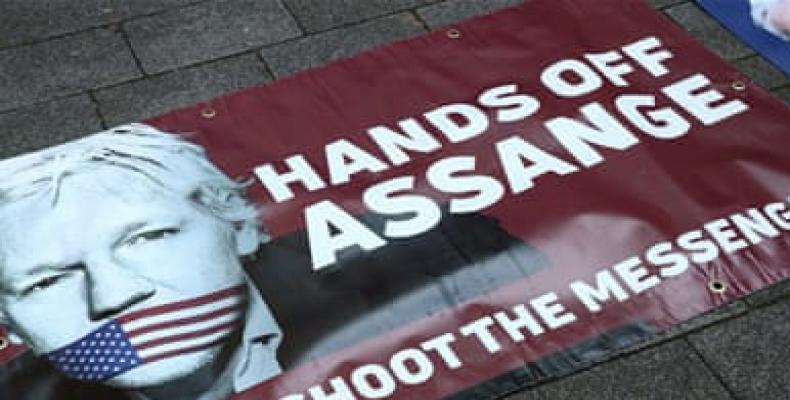
By Pedro M. Otero Cabañas
The saga regarding the situation of the Australian journalist Julian Assange has now reached 35 years, and has become one of the most scandalous matters in the judicial history of the United States and Great Britain, among other accomplices.
I remind you that Assange is the founder and CEO of the WikiLeaks site, which denounced in 2010 the violations of human rights and civil liberties committed by the US army in Afghanistan and Iraq, other countries in the Levant.
Wikileaks published more than 700,000 classified documents on US military and diplomatic activities in that region.
Assange was arrested in London in 2019, after spending seven years in the Ecuadorian embassy in that capital to avoid his extradition to Sweden for an alleged rape case dismissed that same year.
Today, the Australian is imprisoned in a British High Security prison awaiting decisions related to the extradition request made to London by Washington.
His case returned to the headlines these days after learning that the High Court of London decided that Assange will be able to appeal the petition against him. It is, as his wife Stella put it, a great legal victory. “This day marks a turning point,” he added.
If extradited to the US, Julian Assange could face a sentence of 175 years in prison. T he journalist was not present at the hearing due to his delicate state of health.
In March, the English court requested guarantees from the US that the Australian could benefit from the First Amendment of the Constitution, which protects freedom of expression, and that he would not be sentenced to the death penalty.
Edward Fitzgerald, defense attorney, asked if his client could rely on the First Amendment of the North American Constitution, to which he was told from Washington that the actions of the Australian journalist “simply were not protected” by the First Amendment, since it does not apply to no one “in connection with the publication of national defense information”
The Julian Assange affair reveals the gaps in American justice and the fallacy of the West's vaunted freedom of the press.
It is somewhat reminiscent of the Dreyfus affair scandal, back in the 1890s in France. Then the truth was hidden again and this soldier was falsely accused of revealing classified information. The matter, as you will remember, concluded with Dreyfus's freedom thanks to the famous defense of his case made by the famous writer Emil Zolá in his statement known as I Accuse.
Saving the distances and the details of each case, another Emil Zolá, among the thousands who today demand the release of Julian Assange around the world, hopes to achieve justice and the definitive release of the Australian journalist.

